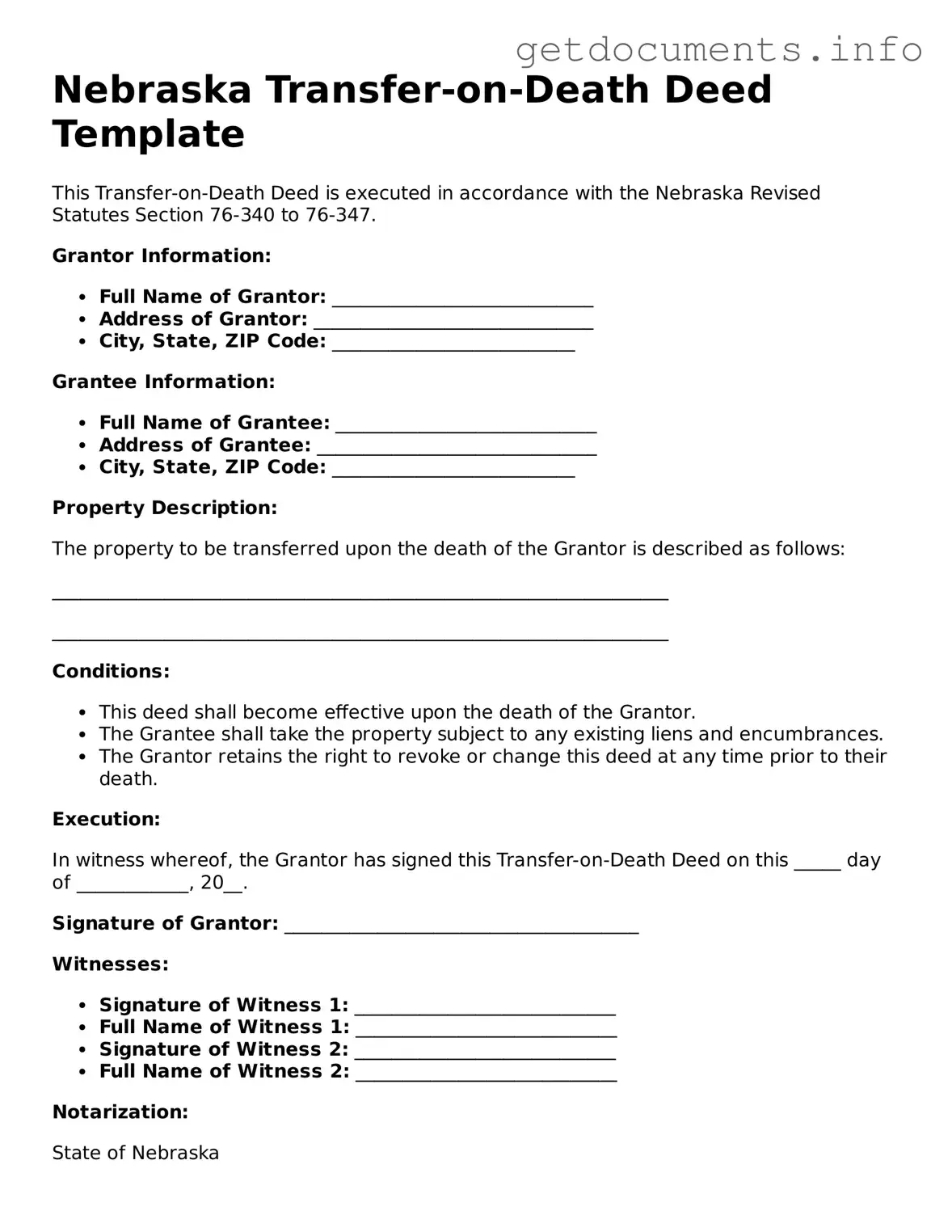Free Transfer-on-Death Deed Template for Nebraska
A Nebraska Transfer-on-Death Deed form allows property owners to transfer their real estate to beneficiaries upon their death without going through probate. This legal document provides a straightforward way to ensure that your property passes directly to your chosen heirs. To get started with this process, fill out the form by clicking the button below.
Access Transfer-on-Death Deed Editor

Free Transfer-on-Death Deed Template for Nebraska
Access Transfer-on-Death Deed Editor
Got places to be? Complete the form fast
Fill out Transfer-on-Death Deed online and avoid printing or scanning.
Access Transfer-on-Death Deed Editor
or
⇩ PDF File
